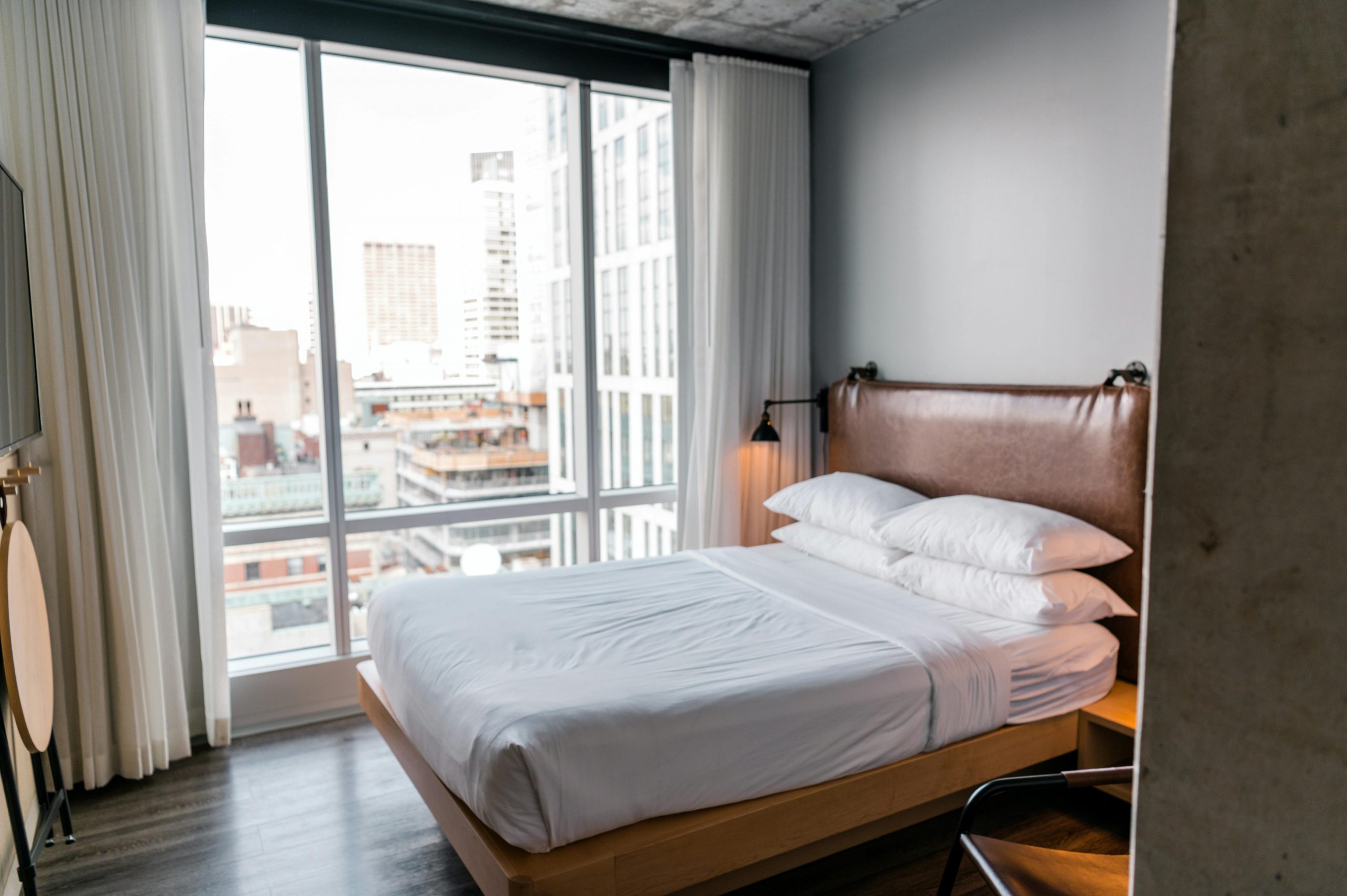
When planning a vacation or business trip, one of the biggest decisions is where to stay. For many people, that comes down to two main options: Airbnb or a hotel. Each has its own benefits, drawbacks, and ideal use cases.
In this guide, we’ll break down the key differences between Airbnb and hotels in a way that’s easy to understand—even if this is your first time booking a trip. Whether you’re looking for comfort, price, location, or safety, you’ll learn how to choose the right fit for your travel style.
What Is Airbnb?
Airbnb is an online platform where people rent out their homes, rooms, or properties to travelers. It offers everything from shared rooms and tiny homes to entire apartments or luxury villas.
When you book an Airbnb, you’re staying in someone else’s space—kind of like a vacation rental, but often more casual and personal.
What Is a Hotel?
Hotels are professionally managed accommodations. They range from budget motels to 5-star luxury resorts. Most hotels offer standard services like housekeeping, front desk staff, security, and room service.
Hotels are designed for short-term stays and cater specifically to travelers with a consistent level of service and quality.
Airbnb vs Hotel: Key Differences to Consider
Let’s explore the main factors that can affect your decision.
1. Price and Fees
Airbnb:
Airbnb can be a cost-effective option, especially if you’re traveling with a group or planning a longer stay. You often get more space for your money, and having access to a kitchen can help save money on meals. However, pricing can vary widely depending on the host and location.
- Can be cheaper for long stays or larger groups
- Cleaning and service fees vary by host and can add up quickly
- Some listings may charge extra for Wi-Fi, parking, or early check-in
- No daily housekeeping unless the host offers it (and that may cost more)
- Discounts are sometimes available for weekly or monthly stays
Hotel:
Hotels tend to have more predictable pricing structures. While they may be more expensive per night, especially in tourist areas, they often include essential services in the base price. For solo travelers or short stays, hotels can be the more affordable and convenient option.
- Often more affordable for short stays or solo travelers
- Taxes and resort fees are usually included or clearly stated
- Daily housekeeping, fresh towels, and bathroom supplies are standard
- May charge extra for parking, in-room dining, or breakfast
- Some offer free breakfast or loyalty program discounts
Bottom Line:
If you’re staying for several nights or sharing costs with friends or family, Airbnb can save you money, especially with access to a kitchen and more space. On the other hand, hotels may be more cost-effective and convenient for shorter trips, solo travelers, or those who prefer consistent service without extra charges popping up unexpectedly. Always compare total costs—including cleaning, service, and any extras—before booking.
2. Comfort and Space
Airbnb:
One of Airbnb’s biggest strengths is the variety of spaces it offers. Whether it’s a cozy studio or a full house, you’ll likely have more room than a standard hotel. Many listings include kitchens, dining areas, private yards, and laundry machines—great for families, longer stays, or anyone who likes to spread out.
- Offers full homes, apartments, or unique spaces like cabins or lofts
- Kitchens, living rooms, and sometimes even outdoor areas
- More space and privacy—ideal for families or group travel
- Feels more like home with personal touches and local character
- Furnishings and quality vary depending on the host and location
Hotel:
Hotels are known for consistency. You’ll usually know what you’re getting, which is comforting for many travelers. While space is limited—especially in budget or city-center hotels—you can expect a clean, functional room with basic amenities.
- Standard room layout with a bed, desk, and bathroom
- Limited space, especially in economy hotels
- Everything is predictable and uniform, which can feel safe and convenient
- High-end hotels offer extras like plush bedding, robes, and room service
- Suites and upgraded rooms provide more space but at a higher cost
Bottom Line:
If you value extra space, privacy, and a home-like feel, Airbnb is the better choice, especially for longer stays or traveling with others. However, if you prefer predictability, easy service, and hotel comfort, a hotel offers a reliable and consistent experience—especially in well-known chains or luxury options.
4. Safety and Security
Airbnb:
When it comes to safety, Airbnb can be a mixed bag. Since you’re staying in someone else’s home or property, the level of safety depends largely on the host, the neighborhood, and the quality of the listing. While Airbnb offers a review system and customer service, there’s no on-site staff to help in real time.
- Safety depends on the host, the location, and how well the property is maintained
- No front desk or on-site security staff—help isn’t always immediate
- Hosts and guests can review each other, helping you choose reliable listings
- Listings may or may not have smoke detectors, fire extinguishers, or secure locks
- Customer support is available online or through the app, but response times may vary
Hotel:
Hotels are built with guest safety in mind. Most have professional staff on duty 24/7, along with security systems, surveillance cameras, and controlled access to guest areas. You can expect standardized cleaning, safety protocols, and support if anything goes wrong.
- Staff available 24/7 to assist with emergencies or concerns
- Security systems like surveillance cameras, keycard access, and fire alarms
- Emergency exits, safe deposit boxes, and front desk help available at all times
- Professional cleaning standards ensure a clean and hygienic space
- Often located in high-traffic, well-lit areas for added safety
Bottom Line:
Hotels generally offer more consistent and immediate safety and support. Their 24/7 staff, security features, and professional standards make them a safer bet—especially for solo travelers or those new to an area. Airbnb safety can vary, so it’s important to read reviews carefully and communicate with hosts ahead of time.
5. Amenities and Services
Airbnb:
Airbnbs often feel like a home away from home. Most offer unique amenities like kitchens, laundry machines, and separate living spaces. These are great if you prefer to cook your own meals or do laundry during a long stay. However, they usually lack hotel-style perks like daily cleaning, gyms, or room service.
- Full kitchens for cooking meals
- In-unit laundry machines in many listings
- No daily housekeeping (unless pre-arranged with the host)
- Limited extras like pools, gyms, or breakfast unless it’s a luxury listing
- Some hosts offer personal touches like snacks, guidebooks, or local recommendations
Hotel:
Hotels are designed for convenience and service. You’ll often get daily housekeeping, access to on-site amenities like pools or gyms, and services such as front desk support, wake-up calls, and luggage storage. High-end hotels also offer concierge service, room service, and on-site dining.
- Daily housekeeping with fresh towels and made beds
- Free breakfast in many hotels
- Access to pools, gyms, business centers, and lounges
- On-site restaurants, bars, or cafés for convenience
- Front desk, room service, and concierge help at your fingertips
Bottom Line:
Hotels win for full-service comfort and amenities. If you value daily cleaning, pools, on-demand meals, and around-the-clock service, hotels deliver that consistently. Airbnb is better for those who want a homier stay, especially if you’re planning to cook, do laundry, or experience a more local lifestyle.
6. Check-In and Flexibility
Airbnb:
Airbnb check-in experiences vary from host to host. Many offer self-check-in using lockboxes or smart keypads, which is convenient if you’re arriving late. However, some still require you to meet the host in person, which can be tricky if your travel plans change. Cancellation policies also differ—some hosts offer free cancellation, while others have strict no-refund rules. Airbnb is great for flexible, extended stays and often allows you to negotiate longer bookings directly with the host.
- Self-check-in with lockbox or smart keypad (common but not guaranteed)
- Some listings require meeting the host for keys
- Cancellation rules depend on the host (flexible, moderate, or strict)
- Great for extended stays or month-long rentals
Hotel:
Hotels are usually more predictable and traveler-friendly when it comes to check-in. Most offer 24/7 front desk service, so you can arrive at any hour. Check-in and check-out times are usually standardized, and cancellation policies are typically straightforward—especially with big chains. Hotels also provide perks like loyalty programs and free upgrades when available.
- Check-in anytime, day or night, at the front desk
- Consistent check-in (often 3 PM) and check-out (usually 11 AM or noon)
- Standardized cancellation policies—many allow free cancellation
- Reward programs offer discounts, free nights, and upgrades
Bottom Line:
Hotels are more reliable for last-minute or late-night arrivals, with 24/7 service and clear policies. Airbnb offers more flexibility for longer stays or unique travel needs, but experiences vary depending on the host, so always check the details before you book.
Pros and Cons Summary
Here’s a quick breakdown of the pros and cons of each:
Airbnb
Pros:
- More space for your money
- Great for groups or long stays
- Local and unique properties
- Full kitchens and home features
Cons:
- Less consistent quality
- Hidden fees (like cleaning)
- Safety depends on the host
- Less support in emergencies
Hotel
Pros:
- Professional service and staff
- Safe and reliable
- Full amenities (pool, gym, breakfast)
- Great for short stays
Cons:
- Smaller space
- Can be more expensive per night
- Less local character
- Limited to hotel rules and schedules
Best Option Based on Your Travel Style
Here’s how to choose based on the type of trip you’re taking:
Solo Travelers or Short Trips
- Best Pick: Hotel
- Why: You’ll get convenience, safety, and easy check-in.
Family Vacations or Groups
- Best Pick: Airbnb
- Why: You’ll get multiple bedrooms, kitchen, and space to hang out.
Business Trips
- Best Pick: Hotel
- Why: Fast Wi-Fi, room service, and close proximity to business centers.
Long-Term Stays
- Best Pick: Airbnb
- Why: You can cook meals and feel more at home.
Romantic Getaways or Unique Experiences
- Best Pick: Airbnb
- Why: Cozy cabins, treehouses, or beachfront homes offer unforgettable settings.
Final Thoughts
So, Airbnb vs hotel—which is better? The truth is, both have their place. Hotels are dependable, convenient, and service-focused. Airbnb is flexible, spacious, and homey. The right choice depends on your budget, how long you’re staying, who you’re traveling with, and what kind of experience you want.
Before you book, ask yourself:
- Do I want daily cleaning or a kitchen?
- Is location or local feel more important?
- Am I staying for one night or two weeks?
Whichever you choose, reading reviews, checking cancellation policies, and knowing what’s included can help you avoid surprises and enjoy your stay.

